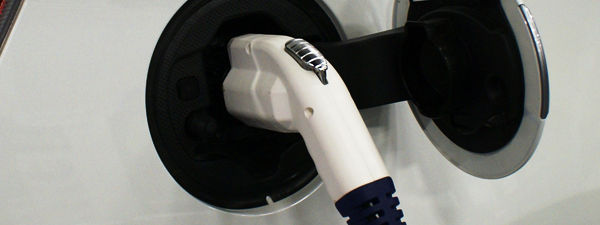In a recent editorial in IEEE Spectrum, author and former GM employee Ozzie Zehner asserts that electric vehicles are not as environmentally friendly as boosters claim, and may even be browner than ICEs. “Dozens of think tanks and scientific organizations have ventured conclusions about the environmental friendliness of electric vehicles. Most are supportive, but a few are critical,” Zehner writes. He cites several of the studies that have examined the overall environmental impact of EVs.
While the writer does include links to a variety of sources (most of them more or less pro-EV), the article, as is plain from the title, is solidly in the “nay” column. “Moving from petroleum-fueled vehicles to electric cars begins to look more and more like shifting from one brand of cigarettes to another,” Zehner writes.
As the leading authority on EVs, Charged might be expected to publish a detailed rebuttal of such a provocative piece. However, responding to all the “poo-in-the-punchbowl” articles about EVs would be something very close to a full-time job. While Zehner asserts that his is “an unpopular stance,” in fact right-wing media outlets have been running articles like this for years (although most include no citations, and are thus unworthy of any response at all).
Therefore, we’ll leave it to the hundreds of readers who have posted comments on Mr Zehner’s article to rebut the instances in which he misleads, cherry-picks and speculates (as, to be fair, opinion writers tend to do). You can read the rebuttals to the rebuttals, etc, and make up your own mind.
A lively exchange of opposing views is a good thing, and Zehner does make a few valid points. Some of the materials that go into EVs (and other vehicles, computers, etc) do come with bad environmental effects, and those need to be talked about and addressed. Last June, Honda released a report documenting the carbon emissions of the company’s vehicles throughout their entire life cycles, and other automakers should do the same. Nissan and Toyota are both working to reduce or eliminate the use of rare earth elements in their motors.
This illustrates why jeremiads such as Zehner’s should be treated as calls to improve the way EVs are built, not to shut up shop and go home. Yes, articles of this kind indulge in various kinds of sophistry, including static thinking (the assumption that existing technology isn’t going to improve) and the “why didn’t they think of that” canard (the assumption that engineers have missed or willfully ignored issues that are obvious to anyone with common sense). Yes, they rely on inflammatory headlines to get people to click. That’s the way journalism works, so instead of angrily dismissing articles of this kind, we encourage you to read them, think about them, and, if you have the relevant technical expertise, to post rebuttals, providing links to published sources that support your position.
Source: IEEE Spectrum


















































